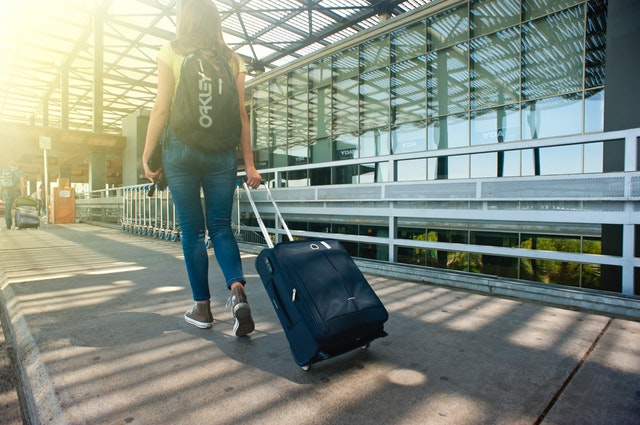
Pavel Burian
November 26, 2021 EuropeFrance, Spain, and Portugal added to Czech high risk travel list

From Monday, it will be more difficult for people not vaccinated against Covid-19 to return to the Czech Republic from France, Spain, Portugal, the Azores and Monaco. These areas will be red on the so-called traveler’s map, indicating a high risk of coronavirus infection. The Foreign Ministry informed about it in today’s press release. There will be changes in other countries as well, but they do not affect the regime upon arrival in the Czech Republic.
Based on data from the European Center for Disease Prevention and Control (ECDC), the Ministry of Health updates the list of countries each week according to the degree of risk of the disease. Only the Vatican will be one of the low-risk areas in Europe. From non-European countries, Argentina, Australia, Bahrain, Hong Kong, Chile, Indonesia, South Korea, Canada, Qatar, Colombia, Kuwait, Macao, New Zealand, Peru, Rwanda, Saudi Arabia, the United Arab Emirates, Taiwan and Uruguay. Only Italy and Malta will remain in the orange category.
For countries marked in green and orange, passengers must complete an arrival form and be tested before entering the Czech Republic or undergo an antigen or PCR test no later than five days after arrival.
Red areas with a high risk of infection will include Finland, France, Cyprus, Monaco, Norway, Portugal, Romania, Spain, Sweden, Switzerland and the Balearic, Canary and Azores and Madeira.
Luxembourg, Poland and San Marino will now belong to the dark red category indicating a very high level of risk. It will join Andorra, Belgium, Bulgaria, Denmark, Estonia, Croatia, Ireland, Iceland, Liechtenstein, Lithuania, Latvia, Hungary, Germany, the Netherlands, Austria, Greece, Slovakia and Slovenia, and other third countries outside the EU.
When returning from a country with a high or very high level of risk, the mandatory PCR test in the Czech Republic is no earlier than the fifth, but no later than the 14th day after arrival. The person away from home must wear a respirator until receiving the test result. Before returning, the test is only required if one uses public transport. There is also an obligation to fill in the arrival form before arrival.
Return conditions do not apply to persons who have completed two weeks of vaccination or have experienced covid-19 in the last 180 days. However, the obligation to fill in the arrival form remains.
The Czechia recognizes vaccination of third-country nationals who have completed vaccination from a non-EU country with a substance approved by the European Medicines Agency (EMA) or its equivalent vaccine approved by the World Health Organization (WHO) for emergency use. These persons must have a verifiable certificate issued, which is published in the list of certificates on the Ministry’s website. It can also be a vaccination from countries for which an implementing act has been concluded and they issue a certificate according to a European regulation.
From Saturday, third-country nationals who have been in more than 12 hours in eight African countries in the last 14 days – South Africa, Namibia, Lesotho, Swaziland, Zimbabwe, Botswana, Mozambique and Zambia will not be able to enter the Czech Republic.
Citizens of the Czech Republic and the EU and holders of long-term stays in the Czech Republic will be able to do so under strict conditions. Before returning, they will have to prove by a negative PCR test and a reservation for another test, which they must undergo within 24 hours of entering the Czech Republic. Subsequently, they will have to take another test no earlier than the 10th, no later than the 14th day after their return, until then they must be self-insulating.
Trips to these countries are not recommended. The measure is still valid until December 12. The government is doing so in an effort to prevent the spread of a new dangerous variant of coronavirus that has been detected in South Africa.
These measures also apply to those who have been vaccinated and those who have experienced covid in the last 180 days. Exceptions are available for international transport staff if the reason for entry is substantiated by an appropriate document, and for children under the age of six if they do not attend pre-school facilities,

